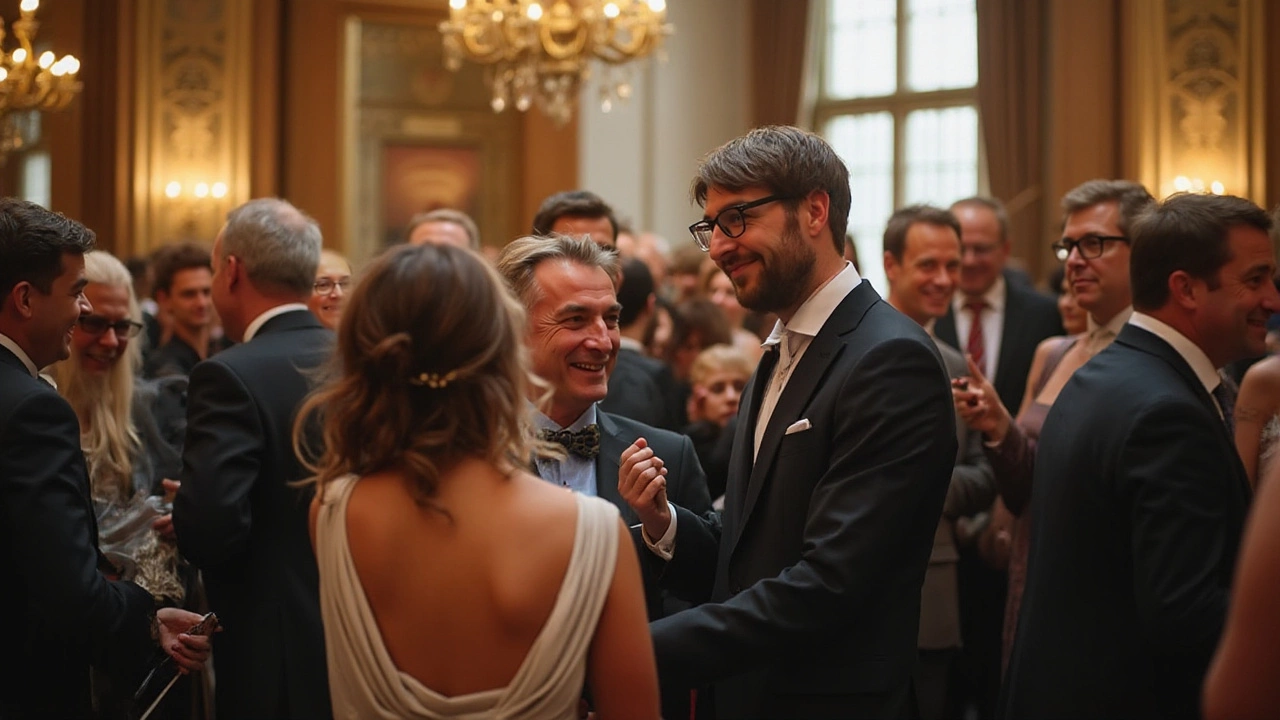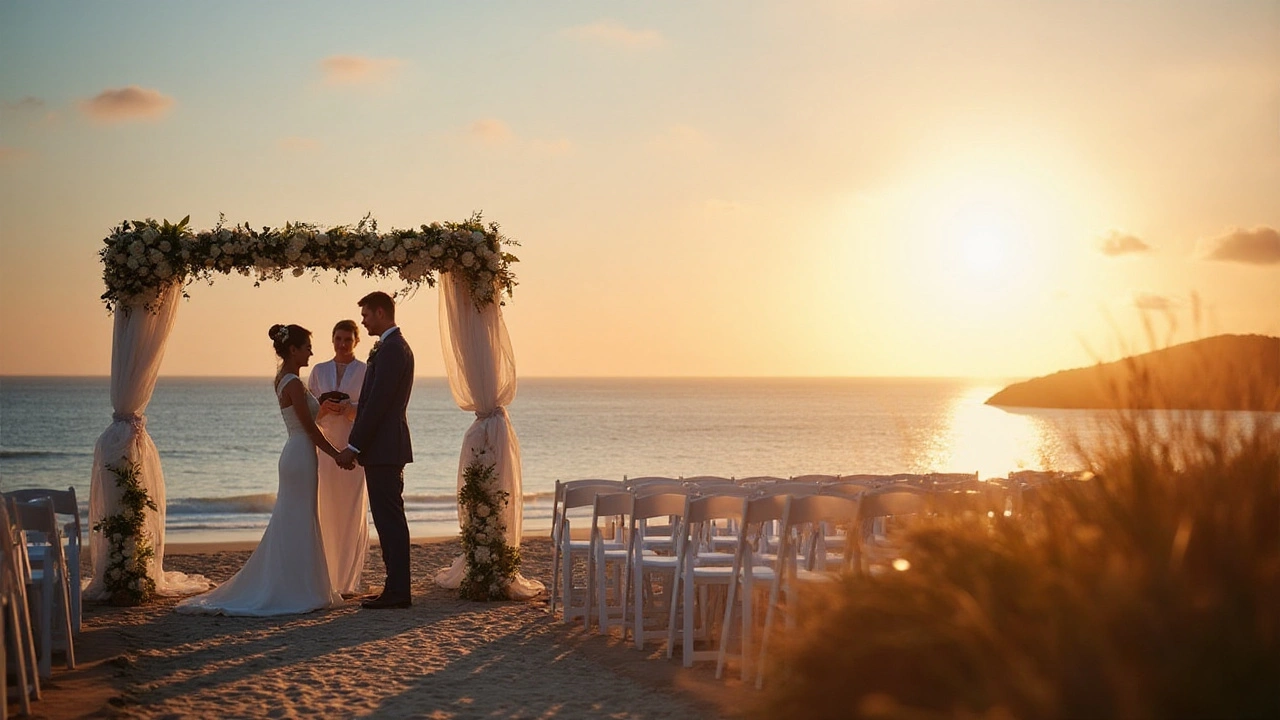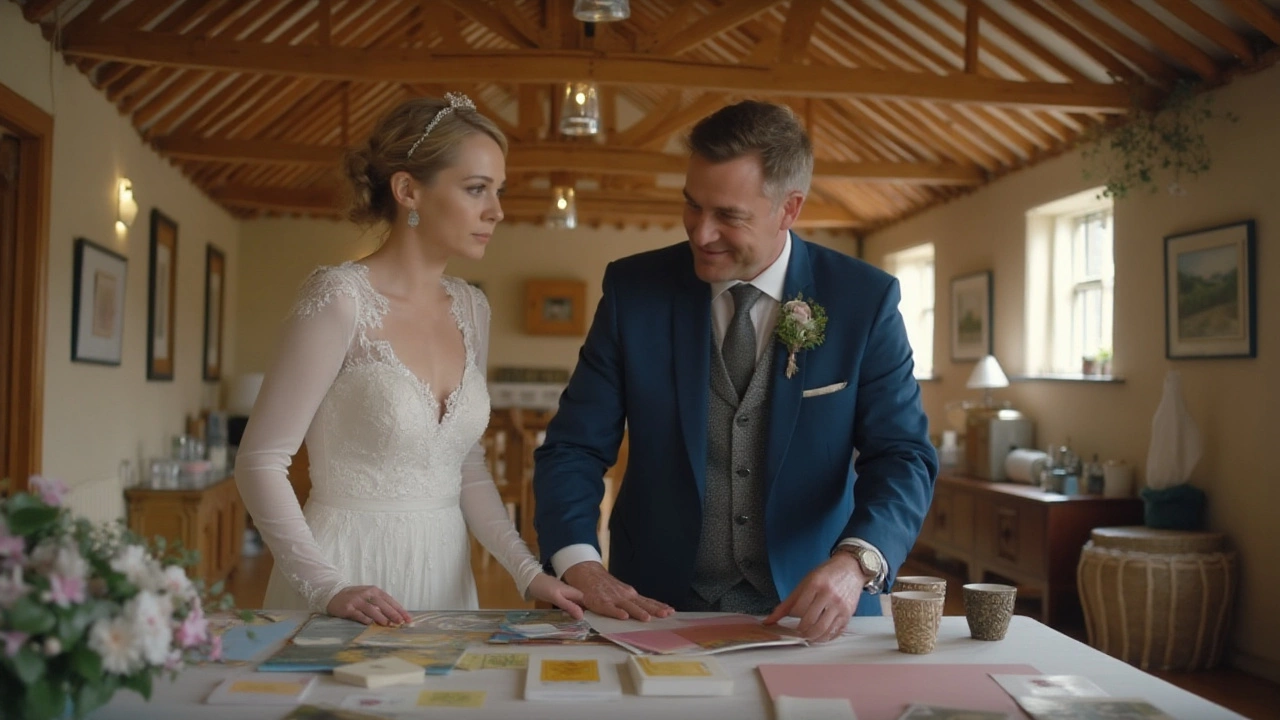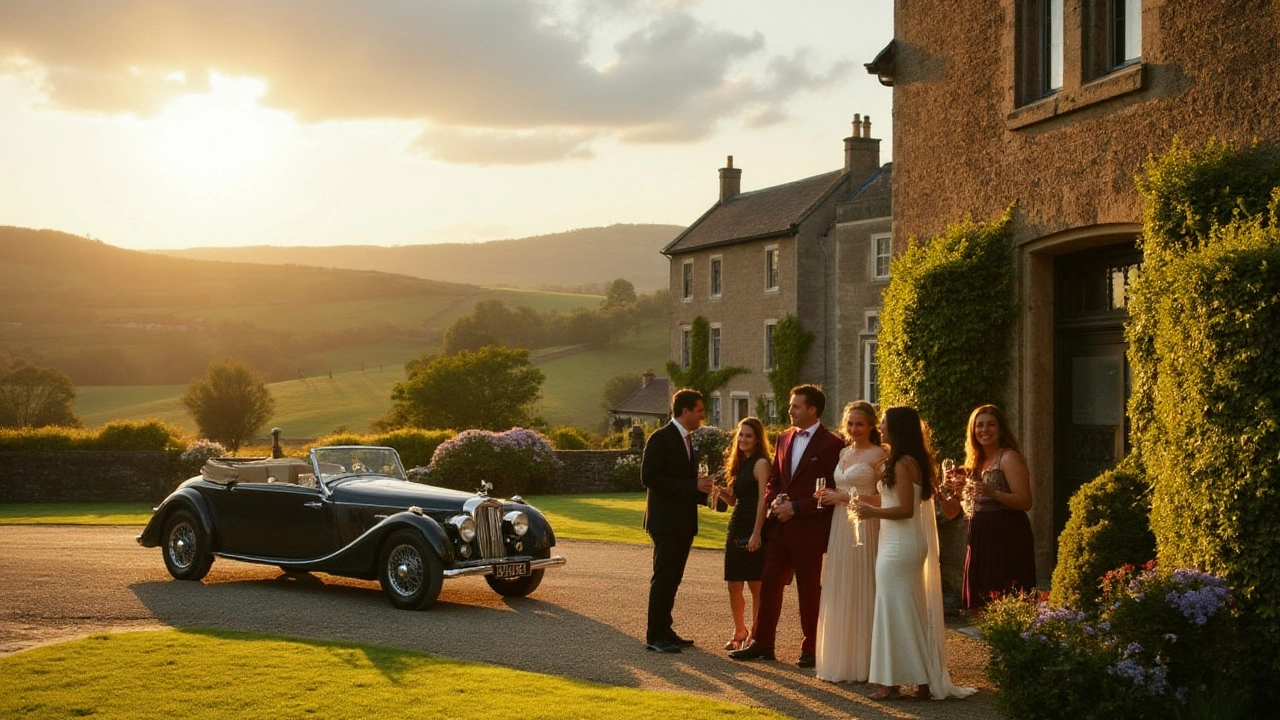Weddings are monumental events filled with joy and love—yet they often carry intimidating costs, especially when it comes to the venue. As many couples discover early in their planning, the venue frequently commands the largest slice of their wedding budget. But what exactly makes it so expensive?
From breathtaking beachfronts to charming countryside barns, the range of available venues is both vast and varied, each with its unique charm and price point. But it’s not just the location that determines cost. Exploring the diverse elements that influence venue prices can empower couples to make informed decisions without sacrificing their vision for their special day.
By understanding these dynamics, couples can navigate the often overwhelming process of selecting a wedding venue. Planning ahead and being mindful of the influential factors can make a big difference, ensuring that the emotional weight of planning doesn’t overshadow the celebration of love and commitment.
- Factors Influencing Venue Costs
- Comparing Venue Options
- Tips to Save on Venue Expenses
- The Importance of Planning Ahead
Factors Influencing Venue Costs
Understanding the different elements that impact the wedding venue costs can seem like unraveling a complicated puzzle. But once the key influences are identified, it becomes much clearer. Firstly, the location of the venue plays a pivotal role in the pricing. A glamorous venue in a bustling city center will command far more than a charming rustic barn nestled in a countryside hamlet. This is primarily due to demand and accessibility. Couples often desire to host weddings at accessible venues, a convenience usually accompanied by higher prices. Interestingly, popular destinations like vineyards or seaside resorts often see marked up costs because they offer not just a service but an experience.
The timing of the wedding can be a significant cost determinant. The wedding season, typically from late spring to early autumn in many parts, sees an upsurge in demand and subsequently, rates follow suit. Saturday evenings, being prime wedding slots, are often booked at a premium. Choosing an off-peak time or a weekday can drastically reduce these expenses. Moreover, consider the facilities offered by the venue when evaluating wedding planning budgets. Venues providing in-house catering and decoration may seem initially costly but often bundle services at a competitive rate compared to hiring vendors separately.
Venue capacity is another notable cost factor. Larger spaces needed to accommodate extensive guest lists are more expensive due to the sheer upkeep costs and staffing requirements. Some locales offer package pricing based on headcount, which can add up quickly for weddings with an abundant guest list. Also, unique venues like museums or art galleries, while memorable, often require additional insurance or rentals, adding to the expense. A little-known fact is that some venues levy fees for using specific spaces within the venue. For instance, using a picturesque garden for a ceremony may attract a separate charge distinct from the main hall rental.
In planning and budgeting for a wedding venue, decor flexibility should be considered. Venues that offer creative freedom might entail additional costs if the base decor isn't appealing and requires substantial enhancements. Yet, many couples cherish this freedom as an opportunity to personalize their day uniquely. Conversely, venues with pre-set themes might limit customization choices but can potentially save money on elaborate decorations. It's a trade-off each couple must weigh based on their preferences and budget.
Additionally, underestimating hidden fees and taxes can lead to shrinkage in budgetary allocations. Service charges, gratuity, and local taxes are commonly overlooked costs that vary significantly based on venue policies and location-specific regulations. To avoid surprises, couples should request a transparent list of these additional fees while negotiating contracts. Richard Markel, executive director of the Association for Wedding Professionals International, once stated,
"It's not enough to ask about price; couples need to inquire about every element involved in venue costs, ensuring clarity and managing expectations proactively."This reflects the importance of thorough communication with venues to ensure every facet of the cost is understood.

Comparing Venue Options
Choosing the perfect wedding venue is a bit like finding the ideal home—it's all about striking the right balance among your dreams, desires, and budget. This process often involves comparing different venue types, from majestic ballrooms to intimate gardens. Each offers its own set of challenges and perks that can significantly impact your budget. Traditional venues like hotels may charge premiums for their comprehensive packages that often include catering, staffing, and decor, making planning a bit more straightforward but potentially less flexible in terms of personalization.
Meanwhile, non-traditional spaces such as converted warehouses, art galleries, or picturesque vineyards might offer a more unique atmosphere at a competitive price. However, these often require hiring additional vendors for catering and decorations. As noted by renowned wedding planner, Colin Cowie, "The venue sets the tone for the wedding. It’s not just about the space, but about how the couple’s vision fits into that space." This reinforces the importance of aligning your venue choice with your overall theme and guest count—a pristine courtyard might be ideal for a small gathering, but a grand hall would better accommodate larger celebrations.
Locations that provide natural beauty—like beaches or mountaintops—can create a stunning backdrop without the need for extensive decorations. However, these often come with their own set of logistical challenges, like limited accessibility and the need for weather contingency plans. Interestingly, a study highlighted that wedding venues can differ greatly in cost even within a single city. For instance, a chic urban loft in Sydney's CBD might have a similar rental rate as a countryside estate an hour away, but each offers drastically different experiences.
Additionally, destination weddings are a growing trend, offering couples the allure of exotic locales. While these can sometimes be cost-effective in terms of venue rentals compared to domestic high-demand cities, they might also lead to increased travel expenses for both the couple and their guests. An enticing locale often means you'll be spending extra time ensuring that all guests reach the destination without a hitch.
"No two wedding venues are created equal, and it's crucial for couples to visit multiple options in person," suggests Kate Weiss, a Sydney-based wedding consultant. "Seeing the space firsthand allows for a better understanding of size, light, and flow."
When comparing venues, keep in mind hidden costs that may not be immediately obvious. Some places might have additional fees for using their preferred vendors or may charge penalties for running overtime. Being aware of these can save you unexpected surprises down the line. To streamline your venue comparison, it might be helpful to create a checklist or a scoring system to evaluate which venue meets most of your criteria ranging from price, ambience, accessibility, to service inclusions. This approach allows for a structured means of comparing on-paper facts against your vision for the day.

Tips to Save on Venue Expenses
Planning a wedding involves a flurry of decisions, and the question of how to trim the expenses on the wedding venue costs is one that frequently stumps couples. However, there are several practical strategies to ease this burden without compromising the magic of your special day. To start with, flexibility with the wedding date can lead to significant savings. Many venues offer substantial discounts for weddings held during off-peak seasons or on non-traditional days like weekdays. While this may require some creative planning, the financial benefits can be well worth a small sacrifice of convenience or tradition.
Another tip is to limit the number of guests. It's not just food and beverages that increase with each additional attendee, but also the size of the venue needed to host everyone comfortably. Smaller, more intimate weddings might mean you can consider unique venues that are both delightful and reasonably priced. With fewer people, you could choose a cosier, unconventional venue space that suits your budget perfectly. Moreover, opting for a venue that includes tables, chairs, and even decor in their packages can lead to great savings as renting these items separately can be more expensive than anticipated. Sometimes, a little bit of research and negotiation can unlock features you hadn't initially considered.
As renowned wedding planner Emily Post eloquently puts it, "Creativity is key. Sometimes the unconventional option proves not just affordable but unforgettable."
Considering local venues or unconventional spaces can also be a budget-savvy decision. For instance, community halls, gardens, or even lovely backyards can host memorable weddings. Another innovative approach is to hold both the ceremony and reception at the same venue, which can often result in package discounts—not to mention the added convenience for your guests. Lastly, don't underestimate the power of the venue’s natural beauty. Selecting a venue that already aligns with your vision can reduce the need for additional decorations, naturally slimming down your budget.
Negotiate and Compare
It’s important to remember that when it comes to weddings, everything is negotiable. Engaging directly with venue managers can sometimes yield discounts or added perks not listed in the brochure. Don't hesitate to ask about special packages or promotions that venues might offer. And, of course, compare what different venues are offering—never settle until you're sure you've explored all your options. Transparency within your planning process will ensure you remain within your budget while still celebrating in style.
Ultimately, striking a balance between desire and expense is key. Careful considerations and willingness to think creatively can allow you to enjoy a beautiful venue without the extra stress of financial strain. While tradition has its place, modern weddings are all about embracing unique preferences and circumstances—and your venue choice is no exception.

The Importance of Planning Ahead
When it comes to orchestrating a wedding, the age-old saying 'fail to plan, plan to fail' could not be more apt, particularly in the realm of selecting a wedding venue. The venue choice can make or break your budget and set the tone for the entire occasion. To avoid last-minute disappointments and unnecessary stress, it's crucial to embark on your venue hunt as soon as you decide on a wedding date. For popular venues, bookings are sometimes secured up to two years in advance. This not only gives you a clearer view of the availability landscape but also provides a buffer to negotiate terms and tailor the space to align with your vision and budget.
An early start provides you the luxury of choice. Rushing last minute can limit your options and lead to hasty decisions, inevitably impacting your wedding. According to a study by Zola, around 40% of couples claimed that venue-related decisions were the most overwhelming part of their wedding planning journey. This illustrates how central the venue is to the entire experience. Asking the right questions early, such as what's included in the rental fee and assessing the total guest capacity, can unveil hidden costs that might otherwise remain unchecked until it's too late.
Additionally, by giving yourself ample time, you can capitalize on potential savings. Many venues offer discounts for booking well in advance or for choosing dates in the less in-demand months. Sitting down with prospective venues and discussing various packages can reveal opportunities such as reduced rates for weekdays or off-peak seasons. As Michelle Cousins, a renowned wedding planner, advises, "Think about the off-season time. If you’re flexible with the date, you could save considerable money by choosing a winter or early spring wedding."
Creating a detailed timeline and sticking to it can also help ensure a smoother planning process. Prioritizing venue selection early allows you to subsequently focus on other significant parts of your wedding smoothly, knowing that the foundation is firmly set. An efficient strategy often includes setting up an initial visit, shortlisting potential choices, and then comparing them in terms of cost, aesthetic appeal, and suitability to your vision. This organized approach can reduce the stress associated with wedding planning.
Never underestimate the power of thorough research and planning. The more informed and structured your approach, the less unexpected surprises will crop up along the way. Indeed, many wedding experts espouse the virtues of planning, with anecdotal evidence suggesting that couples who initiate the process early report a more seamless and enjoyable wedding experience. Ultimately, time becomes not just a tool, but an invaluable ally in crafting the perfect wedding atmosphere without overwhelming financial strain.
